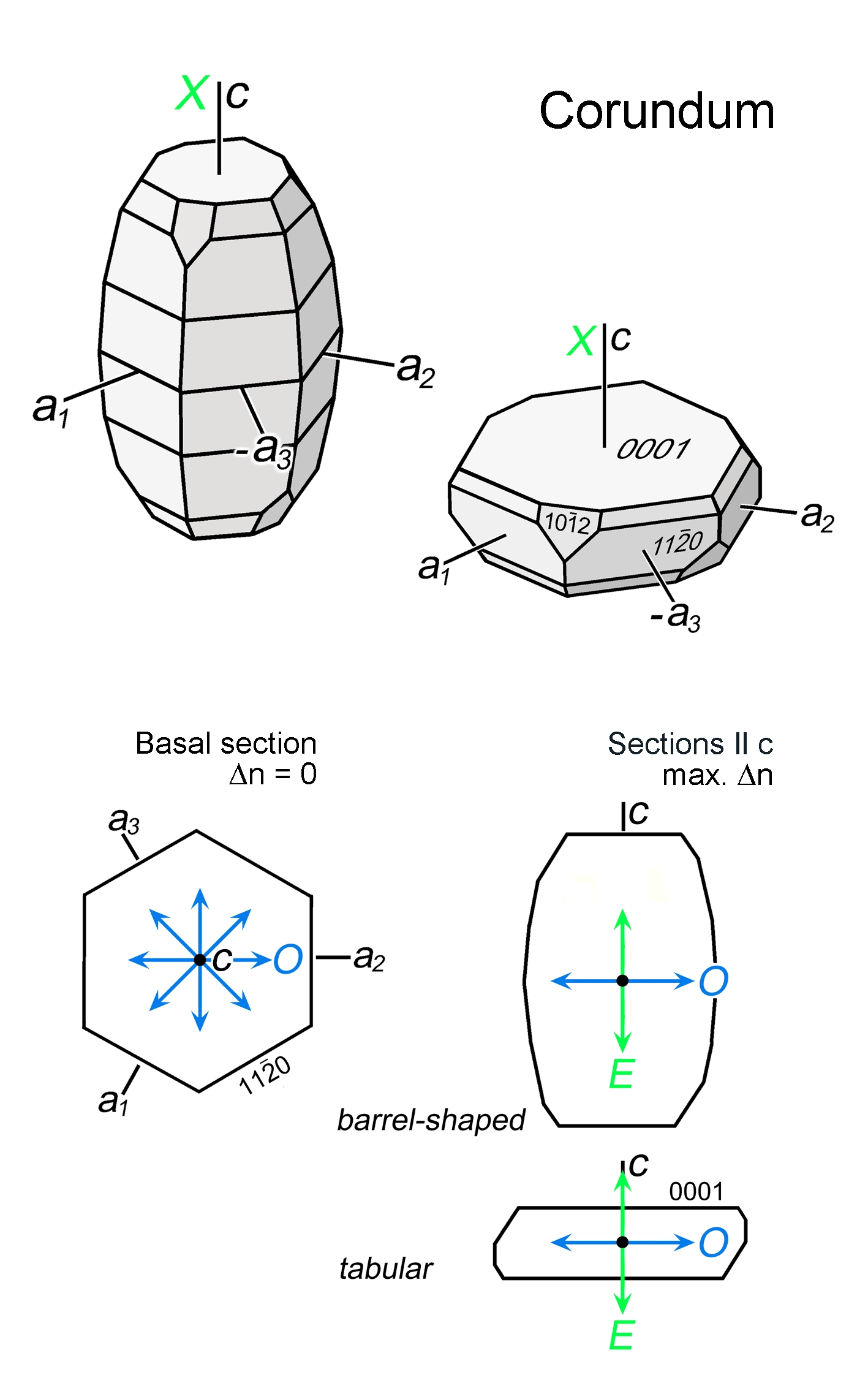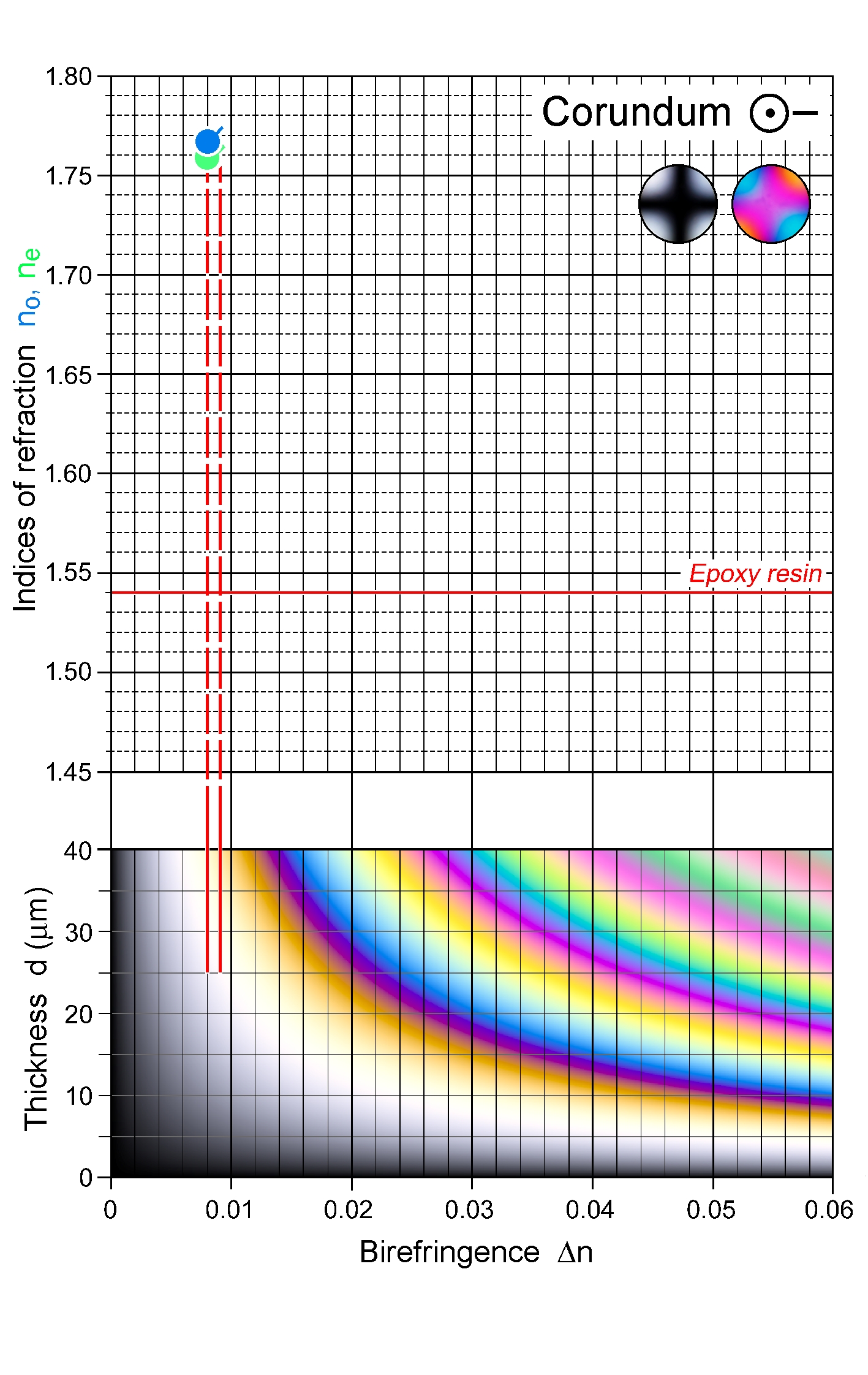|
| Formula | Al2O3 |
| | Optic class & sign | Uniaxial negative |
| | Relief | High |
| | Refractive indices | no = 1.767 -1.774
|
|
ne = 1.759 -1.765
|
|
| n increases with Cr and Fe content |
| | Birefringence (max.) | 0.008 - 0.009 |
| | | Δn increases with Cr and Fe content |
| | Sign of elongation | Length-fast, l (-), for crystals elongate in c; length-slow, l (+), if tabular |
| | Interference figure | Broad isogyre cross, low first-order grey to white background. Anomalous biaxial crystals (2V up to 50-60°) may be observed |
| | Colour / pleochroism | Colourless to weakly coloured (O>E); colour zoning may be concentric or patchy; sapphire: blue (O) to blue-green or yellow-green (E), ruby: red-purple (O) to pale yellow (E) |
| | Zoning | |
|
|
| Form | Habit | Short- to long-prismatic, barrel-shaped, granular, tabular |
| | | Surface | Euhedral to anhedral |
| | Cleavage | None, but parting on {0001} and {1011} is common |
| | Twinning | Lamellar or simple twins on {1011} |
| | Extinction | Straight to prism faces and basal {0001} faces or parting planes in sections ∥ c; symmetrical to pyramid faces and {1011} parting planes |
|
|
| Reaction textures | |
| | Alteration / decomposition | Margarite, muscovite, diaspore, gibbsite |
|
|
| Occurence | Ign | Silica-undersaturated felsic rocks such as syenite, nepheline syenite and monzonite, quartz-free pegmatites; less common in volcanic rocks |
| | | Met | Aluminous, Si-poor metapelites and carbonate rocks; meta-bauxites; emery deposits from contact zones between igneous rocks and carbonates |
| | | Sed |
Detrital in sands (heavy mineral fraction) |
| | | Hyd | - |
| | | Other | |
|
|
| Distinctive properties | High relief, low birefringence, characteristic parting |
| | Additional comments | Corundum in association with quartz is observed in some high-temperature granulites, but the existence of a Crn+Qz stability field is still a matter of controversy |
|
|

 Images
Images 


 Images
Images 
